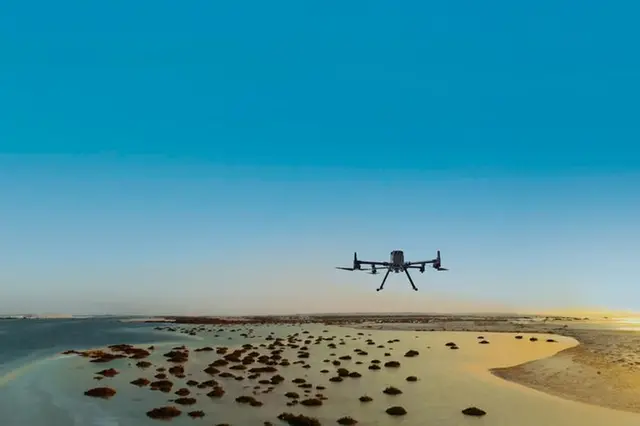The Environment Agency – Abu Dhabi (EAD) has partnered with Dendra Co. for an environmental study to assess the state of natural terrestrial habitats in Abu Dhabi, in the largest-ever field research project in the region.
Implemented and facilitated in collaboration with Dendra Co—an environmental technology company which uses artificial intelligence methodologies and data collection programs via smart sensors provided to drones— the programme covered 11,000 hectares, measuring the extent and dynamics of changes in the diversity and the distribution of local plants linked to human uses and anthropogenic influences.
Indeed, HE Dr. Shaikha Salem Al Dhaheri, EAD Secretary-General, explained that the programme enabled a representative survey of the critical vegetation cover most vulnerable to environmental threats resulting from human use and climate change.
“The detailed data resulting from the programme will contribute to giving clearer guidance, which will enhance the decision-making process to deal with the increasing pressures proactively,” said the EAD Secretary-General.
Ahmed Al Hashemi, Executive Director of the Terrestrial and Marine Biodiversity Sector at EAD, said that employing advanced technologies, including innovative techniques powered by artificial intelligence and the use of drones in environmental research, is “extremely effective,” and has enabled the agency to accomplish coverage of areas that are “inaccessible through traditional methods.”
“The environmental and financial impact of these techniques is considered small compared to the negative effects on the environment resulting from traditional field work methods resulting from the use of vehicles to reach research areas,” said Al Hashemi.
Adding: “This is in addition to the clear rationing of operational administrative costs. A standard comparison showed that this approach contributed to saving time and costs by up to 90 percent, compared to traditional methods, and therefore this programme is considered an important qualitative addition to the work methods followed by EAD.”
The environmental study programme also included photographic documentation of wildlife distribution areas and an assessment of the extent of their relationship with wild plant species.
In addition to field monitoring and research, a smart geographic database platform was developed to document all project information to produce instant reports and accurate statistical analysis, it was shared.
EAD also implemented an operation to disperse seeds of local plant species using drones capable of carrying a total weight of 70 kg, dispersing them in three areas in Abu Dhabi.
Each 380-hectare area was monitored as a baseline to assess how these seeds respond to natural regeneration linked to rainfall rates and soil type.
The team will also conduct an annual study of the same sowing areas to measure data on the success of natural germination, it said.



